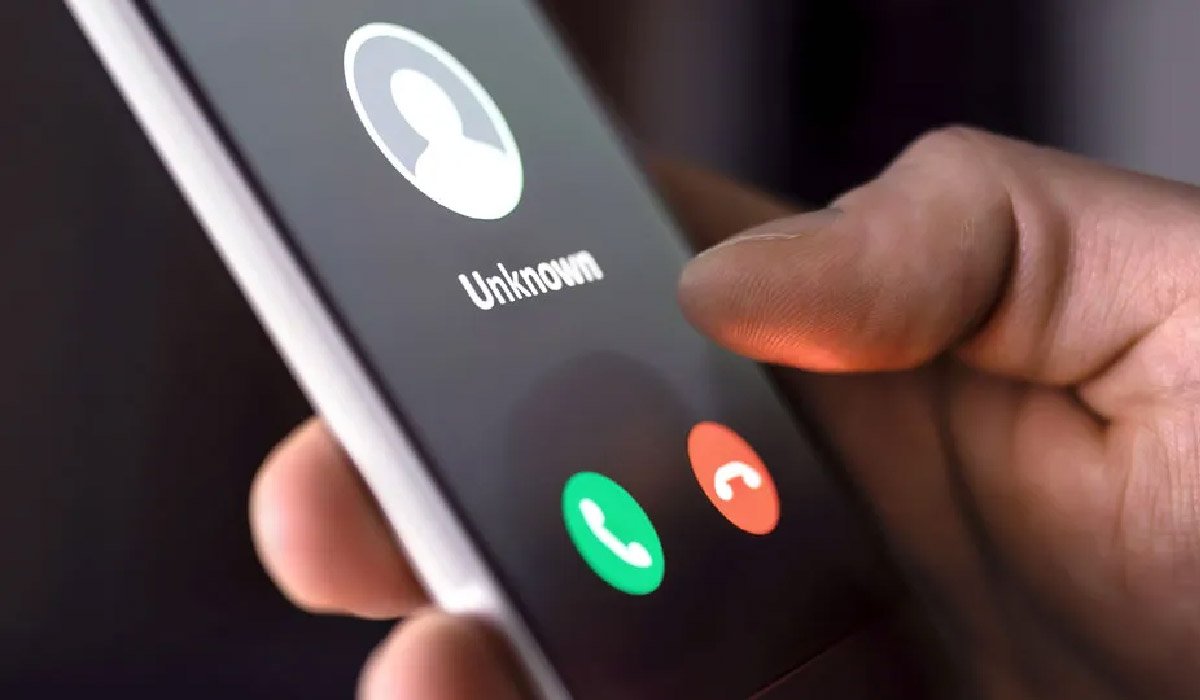The phone number 1-617-693-7201 has gained considerable attention in recent years due to its frequent appearance in scam reports, online complaint boards, and fraud prevention forums. Many people have reported receiving unsolicited calls from this number, often linked to phishing attempts, caller ID spoofing, and high-pressure scam tactics. As digital communication evolves, so do the strategies used by fraudsters, and numbers like 1-617-693-7201 have become part of sophisticated schemes designed to manipulate and deceive unsuspecting individuals.
These scams can lead to severe consequences such as financial loss, identity theft, and emotional stress for victims. Understanding the nature of these calls and recognizing the warning signs is essential to safeguarding personal and financial security. In this comprehensive guide, we will explore how scammers operate using this number, common tactics they employ, real-life examples, and actionable strategies to protect yourself. We will also cover reporting mechanisms and the legal measures in place to combat fraudulent calls, empowering you to stay one step ahead of scammers.
What is 1-617-693-7201?
The phone number 1-617-693-7201 has been widely reported across various scam alert platforms and consumer protection websites. It often appears in databases that track suspicious numbers used in fraudulent activities. While the number may seem legitimate due to its U.S. area code, it has been linked to robocalls, phishing schemes, and impersonation attempts. In many cases, the actual caller may not be physically connected to this number at all, as caller ID spoofing can disguise the real origin of the call. Spoofing allows scammers to display this number on a recipient’s caller ID to gain credibility and encourage the person to answer. Reports suggest that calls from 1-617-693-7201 follow recurring patterns of unsolicited contact, targeting people in multiple U.S. states and sometimes even abroad.
Why This Number is Considered Risky
Online forums, scam tracking websites, and consumer protection agencies have received numerous complaints regarding calls from 1-617-693-7201. The most common red flags include unsolicited contact, automated voice messages, and requests for personal information. Many victims report being pressured into sharing sensitive details such as banking credentials, Social Security numbers, or login information. Scammers often exploit the familiarity of local or national area codes to build trust and bypass suspicion, making it more likely that recipients will answer. Because of these patterns and repeated complaints, the number has been flagged as a high-risk source of potential fraud, making caution essential when encountering it.
Common Scam Tactics Linked to 1-617-693-7201
Caller ID Spoofing
Scammers using 1-617-693-7201 frequently rely on caller ID spoofing to disguise their true identity. By making the call appear as if it comes from a trusted business, government agency, or local number, they significantly increase the chances of someone answering. This technique exploits the assumption that familiar-looking numbers are safe, and it is often the first step in a larger fraud attempt.
Robocalls
Automated robocalls are another tactic linked to 1-617-693-7201. Victims report hearing pre-recorded messages claiming to be from the IRS, bank fraud departments, or tech support services. These messages typically create a sense of urgency, warning about compromised accounts or legal action, to pressure recipients into calling back or following automated prompts without verifying authenticity.
Phishing Attempts
Phishing scams associated with this number involve impersonating trusted organizations like banks, government offices, or delivery companies. The callers may request sensitive details under the guise of verifying an account, resolving an issue, or confirming an order. Common targets include Social Security numbers, credit card details, and online banking logins.
High-Pressure Sales or Threats
Fraudsters may also use aggressive persuasion or intimidation to manipulate victims. Reports describe threats of legal consequences, immediate account closure, or even arrest if the target does not comply quickly. In other instances, the caller may present a “limited-time offer” designed to force rushed decisions without proper verification.
READ ALSO: Masgonzola Cheese: Delicious Creamy Blend You Must Try
How Scammers Use 1-617-693-7201 to Target Victims
Fraudsters using 1-617-693-7201 often operate through automated dialing systems capable of contacting thousands of people within hours. These mass call campaigns target both individuals and small businesses, focusing on demographics perceived as more vulnerable—such as seniors, less tech-savvy users, or people unfamiliar with scam patterns. Data breaches also play a major role, as stolen contact lists allow scammers to target individuals with precision. This combination of automation and targeted information makes it easier for fraudsters to execute convincing and persistent scam attempts.
Risks of Answering Calls from 1-617-693-7201
Engaging with calls from 1-617-693-7 201 poses several risks. Financially, victims may suffer unauthorized withdrawals, fraudulent charges, or even full account takeovers. On a personal level, identity theft is a major concern, as stolen details like Social Security numbers, dates of birth, and addresses can be used to open accounts or commit further fraud in your name. Beyond tangible losses, the emotional toll can be significant—victims often report stress, anxiety, and a diminished sense of trust in legitimate communication channels.
How to Protect Yourself from Calls Like 1-617-693-7201
Avoid Answering Unknown Numbers
The simplest way to reduce risk is to let unknown calls go to voicemail. Scammers rarely leave genuine messages, and legitimate callers will typically use alternate methods to reach you.
Never Share Personal Information
Do not provide Social Security numbers, banking details, or passwords to unsolicited callers. Legitimate companies will not request such sensitive data over the phone.
Verify Caller Identity
If a call seems urgent or important, hang up and contact the organization directly using the official number from its website or your account statement.
Report Suspicious Calls
Report calls from 1-617-69 3-7201 to the FTC, FCC, or your local consumer protection agency. Adding your number to the National Do Not Call Registry can also reduce unwanted telemarketing attempts.
Use Call-Blocking Apps
Services like Nomorobo, Hiya, and Truecaller can automatically block known scam numbers. Many carriers also offer built-in spam filtering tools.
Enable Caller ID Authentication
Look for services using STIR/SHAKEN technology, which authenticates the origin of calls and reduces spoofing.
Legal Measures Against Scam Calls
The Telephone Consumer Protection Act (TCPA) sets strict rules for telemarketing and automated calls, requiring consent before contacting individuals. The FTC and FCC enforce these regulations and have authority to penalize violators. Internationally, agencies like INTERPOL work with national regulators to combat cross-border scams by sharing intelligence and disrupting fraudulent networks. These measures aim to hold scammers accountable and reduce the frequency of illegal calls.
How to Stay Informed About New Scam Trends
Staying aware of evolving scam tactics is vital. The FTC’s Scam Alerts and the Better Business Bureau’s Scam Tracker provide up-to-date warnings about emerging threats. Cybersecurity newsletters and local consumer protection bulletins are also valuable resources. Participating in community awareness programs can further strengthen your defense by keeping you informed about trends targeting your region.
Real-Life Examples of 1-617-693-7201 Scam Calls
One common report involves a retiree receiving a call claiming to be from the IRS, threatening legal action unless immediate payment was made via gift cards. Another example is a tech support scam, where the caller convinced the victim to install remote desktop software, giving the fraudster full access to their computer. In a third case, a recipient was told their Amazon order had been compromised and was prompted to “verify” their credit card information—an attempt to harvest payment details.
Expert Tips to Enhance Your Fraud Protection
Experts recommend creating strong, unique passwords and enabling two-factor authentication for important accounts. Regularly checking credit reports helps identify suspicious activity early. Shredding documents with personal information before disposal can prevent identity theft from discarded paperwork. Keeping software and apps updated closes security gaps, and using a VPN on public Wi-Fi protects data from interception.
What to Do if You’ve Already Shared Information
If you have given sensitive details to a caller from 1-617-693-7201, act immediately. Contact your bank to secure your accounts, place a freeze on your credit to prevent new accounts being opened, and change all potentially compromised passwords. File an identity theft report with the FTC and monitor financial statements closely for unusual transactions.
Final Thoughts
The phone number 1-617-693-7201 is strongly associated with fraudulent activity, and any interaction with it should be approached with extreme caution. Recognizing the warning signs, employing protective measures, and reporting suspicious calls can significantly reduce your risk. By staying informed and sharing this knowledge with others, you contribute to a safer communication environment for everyone.
FAQs About 1-617-693-7201
Q1: What is 1-617-693-7201?
A: The phone number 1-617-693-7201 is widely reported as being linked to scam calls, phishing attempts, and robocalls. Scammers often use it with caller ID spoofing to make the call appear legitimate, tricking people into answering and sharing personal or financial information.
Q2: Why am I getting calls from 1-617-693-7201?
A: You may be receiving calls from 1-617-693-7201 because scammers use automated dialing systems to contact large numbers of people. They may target random phone numbers or use contact lists from data breaches to try and trick you into revealing sensitive details.
Q3: Is 1-617-693-7201 a scam number?
A: Yes, many reports confirm that 1-617-693-7201 is used in scam-related activities, including fake IRS calls, technical support scams, and phishing attempts. It’s best to avoid answering and block the number to protect your privacy.
Q4: What should I do if 1-617-693-72 01 calls me?
A: If you receive a call from 1-617-693-7201, do not answer if you don’t recognize the number. If you do answer, avoid sharing any personal or financial information. Hang up immediately and report the call to the FTC or your local consumer protection agency.
Q5: How can I block 1-617-693-7201?
A: You can block 1-617-6 93-7201 using your phone’s built-in call-blocking feature or by installing apps like Nomorobo, Hiya, or Truecaller. Many mobile carriers also offer free or paid spam-blocking services to stop known scam numbers from reaching you.














